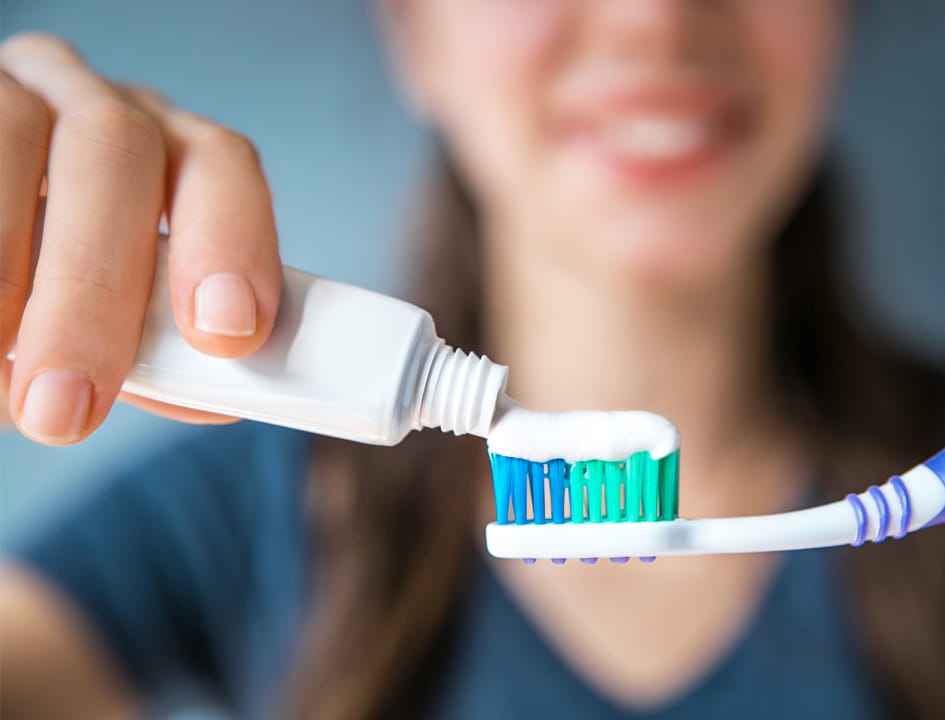written by:
reviewed by:

Xylitol is a sugar replacement used in some toothpaste that may be able to prevent tooth decay. Because it is a sugar-alcohol, it does not raise blood sugar levels, does not contain fructose, and has fewer calories. Chemically, sugar alcohols combine traits of sugar molecules and alcohol molecules and their structure allows them to stimulate the taste receptors for sweetness on your tongue. Xylitol, found in small amounts in fruits, vegetables, and some other plants (like corn and the birch tree), is considered natural, and humans even produce small quantities of it via normal metabolism.
It is a common ingredient in sugar-free chewing gums, candies, mints, diabetes-friendly foods, and oral-care products. But does that mean you should be using it in your toothpaste? Before you make a decision, you should consider the following information about xylitol:
Xylitol Boosts Dental Health
Although further research is still needed, some studies have shown a correlation between xylitol and a decrease in the harmful mouth bacteria that causes tooth decay. Oral bacteria feed on glucose, a by-product from food. However, xylitol is non-fermentable and the bacteria essentially starve after absorbing it. This is because xylitol reduces the levels of mutans streptococci (MS) in plaque and saliva by disrupting their energy production processes, leading to futile energy cycle and cell death. It reduces the adhesion of these microorganisms to the teeth surface and also reduces their acid production potential. One way xylitol does this is through increased salivary flow when used as a gum or toothpaste, promoting mineralization of the tooth enamel through the rinsing away of acid.
Xylitol Can be Helpful for Children, But May Have Side Effects
Xylitol can be a helpful agent for children or for those who lack the manual dexterity needed to brush effectively. Although xylitol has not been shown to reduce plaque on its own, it can reduce the risk of gingivitis, thus making it an additional helpful tool in a comprehensive oral hygiene routine. However, keeping the daily dosage at 50 grams or less is important, as higher dosages tend to cause diarrhea, bloating, and gas. The recommended amount in gum, candies, or toothpaste is between 1-20 grams for adults and children who are 5 years or older. Additionally, due to the connection between the ear, nose, and throat, xylitol has been shown to reduce the rate of recurring ear infections in children younger than 5 years old.
Xylitol Recommendations
Many say xylitol tastes better than other sugar substitutes. In addition, it can help improve sensitivity to cold drinks and cold foods, promote whiter teeth, and is low on the glycemic index — making it diabetic and keto-friendly. However, be aware that xylitol can be very irritating to the stomach and it’s important to start slow. Additionally, be cautious with your xylitol use around pets: It is extremely toxic to animals, particularly to dogs.
If you’re looking to get rid of the harsh chemicals found in most toothpastes, there are a large variety of other, more natural options with xylitol available; however, always check where the xylitol is sourced from. Just like with any product, do your research before purchasing.
Tip: Before incorporating xylitol in your toothpaste or as a sugar substitute, look for xylitol made from birch trees (preferably organic) instead of corn, as most corn-based xylitol is sourced from China.
© iStockphoto
The information provided on Health Food Radar is intended for general informational purposes only. While we strive to offer accurate and up-to-date content, we do not provide medical advice, diagnosis, or treatment. Always consult with a qualified healthcare professional before making any dietary or lifestyle changes, especially if you have underlying health conditions or concerns.



